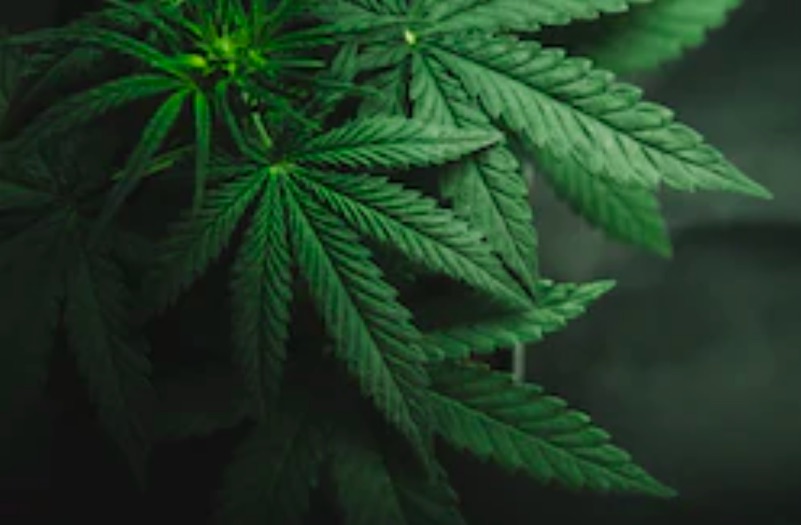Marijuana and Midterms
I detest when the government, federal or state, tells individuals what they can and cannot choose to consume, whether it is soda, salt, or sativa. And nowhere has this government paternalism been more devastating than with the ban on drugs, including that of marijuana. Thankfully, marijuana-legalization initiatives were once again incredibly successful in the midterm election, demonstrating that the pro-legalization trend is well on its way to fulfillment.
It should be a no-brainer. The decades-long war on drugs has failed miserably. According to a new report by the Cato Institute’s Jeff Miron, “state and local governments spend $29 billion on drug prohibition annually, while the federal government spends an additional $18 billion.” Despite total government expenditures of well over $1 trillion dollars to stop the stoner scourge, overall drug consumption has barely changed. Indeed, some drug prices are falling, and drug addiction has gone up while those who seek treatment are at increasing risk of being persecuted rather than healed.
In addition, millions of lives have been destroyed by this war. And thousands of families have been torn apart by an insane crusade that puts parents in jail for selling marijuana.
If you think the war on drugs is mostly a war on substances other than pot, think again. As Miron writes, “Absurdly, police arrest more people for marijuana violations in the U.S. than for all violent crimes combined. An ACLU study found that between 2001 and 2010, police made over 7 million arrests for marijuana-related activity — one apprehension every 37 seconds.”
He adds that “data from the Drug Policy Alliance reveal that 89 percent of arrested individuals are charged with possessing small amounts (usually no more than a few grams) of the substance.” Finally, it is well documented that marijuana arrests are not evenly distributed across the population; these are — surprise! — disproportionately imposed on African Americans.
Because the right thing to do is to legalize all drugs, we can applaud the results of the last elections. Things have radically improved in the last few years. Before Tuesday, 31 states had legalized medical marijuana in some form or other, meaning they respect the right of individuals to choose medical marijuana to treat stress or to relieve the nausea associated with cancer treatments and epilepsy. On Tuesday, Utah approved a medical-marijuana initiative, thus making Utah one of “the most conservative states to adopt a liberalized approach to marijuana as medicine,” explains Brian Darling, the founder of Liberty Government Affairs.
Meanwhile, nine states and the District of Columbia already allow adults to use marijuana without a doctor’s prescription. And now Michigan follows these states. This liberalization is quite a contrast with the federal government’s prohibition, which treats marijuana as if it were as dangerous as heroin. It is also worth noting the inconsistency of a regime that, on the one hand, treats cocaine as less dangerous than pot by recognizing cocaine’s medical uses (and thus classifying it as a Schedule II drug), while on the other hand classifying marijuana as a Schedule I drug, meaning that it has no accepted medical uses and has a high potential for abuse.
Another aspect of the elections that might end up being crucial to the future of marijuana legislation is the defeat of Rep. Pete Sessions (R-Texas) by Democrat Colin Allred. Darling notes, “Sessions is very anti-marijuana federalism and used his position as chairman of the House Rules Committee … to block votes protecting states that allowed medical marijuana.” This reality is particularly important in light of the news that Attorney General Jeff Sessions has been ousted.
While not guaranteed, Jeff Sessions’ ouster will likely take the steam away from a Justice Department all too eager to re-energize the federal war on pot and to interfere with the will of the voters in states that allow at least the medical use of marijuana.
Jeff Sessions’ blind hostility to marijuana use isn’t surprising. It has been evident at least since he was a U.S. senator. Sessions once said during a Senate hearing, “Good people don’t smoke marijuana.” So nobody was surprised when a few weeks ago he revoked the Cole memo — a document that provided guidance to federal prosecutors about targeting sales to children, money laundering, and sales across state lines versus targeting the legal sale of medical and recreational pot.
The memo was a poor substitute for revoking the Controlled Substances Act of 1970. Still, it was a start: it provided banks, users, and dispensaries with confidence that they could operate without arrest. Unfortunately, Jeff Sessions’ move signaled that this small period of peace was over and that there was once again a risk that Uncle Sam would prosecute individuals and corporations in states that allow marijuana use.
Though this was a legal move well within the Department of Justice’s purview, it was also a boneheaded one. Whatever one thinks of pot use, I can’t imagine a good justification for going back to prosecuting the perpetrators of victimless crimes. It also is inconsistent with federalism, wherein states are allowed to make decisions independently of federal control on a variety of issues, such as legalizing marijuana — not to mention the will of the people, 62 percent of whom say they support legalizing marijuana.
With Jeff Sessions gone and with the House now in the hands of the Democrats, there is a chance that true bipartisan marijuana-legalization legislation will see the light of day. In addition, this might give a new lease on life to legislation similar to the STATES Act, a bill introduced by GOP Senator Cory Gardner of Colorado and Democratic Senator Elizabeth Warren of Massachusetts that would eliminate the federal prohibition on states that had legalized marijuana under their own statutes.
Over at The Volokh Conspiracy (hosted on Reason.com), George Mason University’s Ilya Somin writes that “a Democratic-controlled House could pass it without having to worry about the Hastert Rule or potential opposition from socially conservative Republicans who still favor federal prohibition.”
While passage in the Senate is harder, it would take only a few Republicans joining forces with Democrats to restore an important aspect of federalism as well as individuals’ freedom to consume marijuana without fear.
Elections are rarely good news for libertarians as they only get to see one of the two anti-freedom parties win. But all things considered, Tuesday’s outcome was good for the freedom to consume and not to be jailed for your consumption choices.












